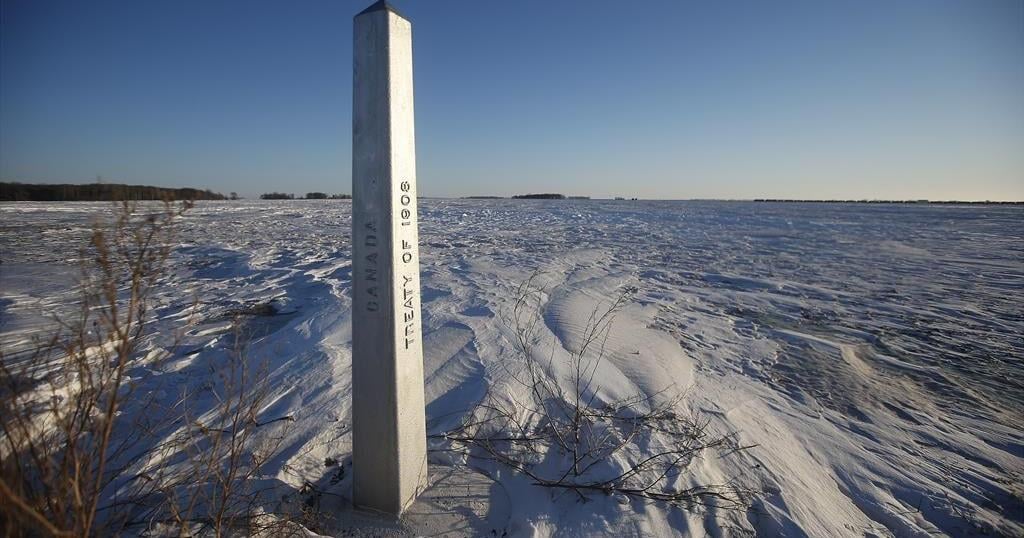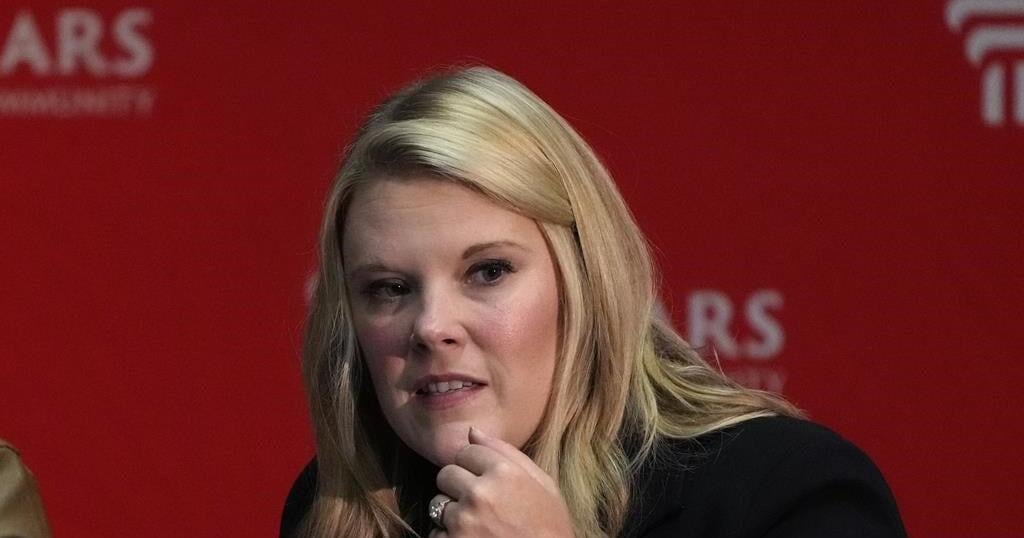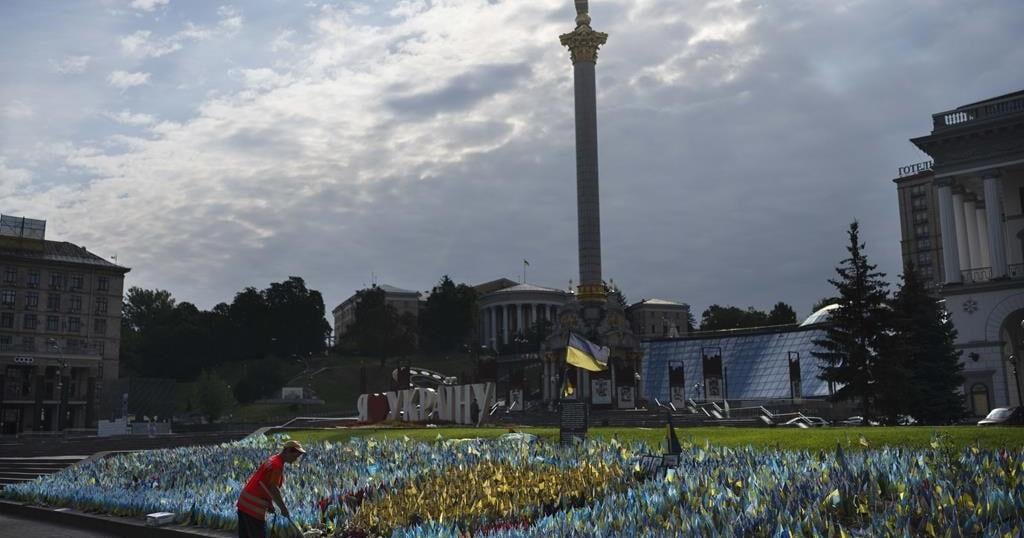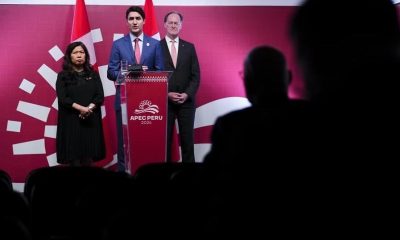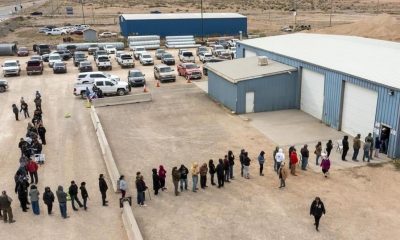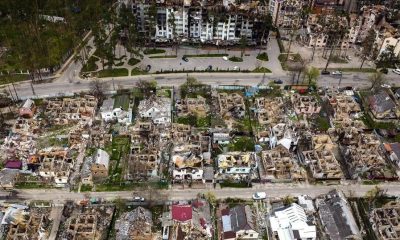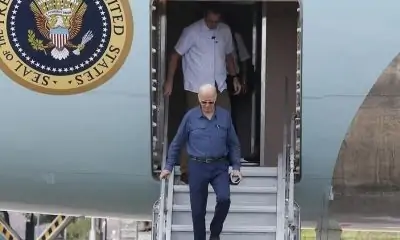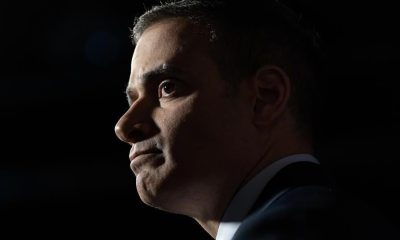RIO DE JANEIRO (AP) — With Brazil preparing to host the Group of 20 summit, it appears unlikely the leading rich and developing nations will sign on to a meaningful declaration regarding geopolitics: The meeting Monday and Tuesday in Rio de Janeiro is overshadowed by two major wars and Donald Trump’s recent election victory.
Heightened global tensions and uncertainty about an incoming Trump administration have tempered any expectations for a strongly worded statement addressing the conflicts in the Middle East and between Russia and Ukraine. Experts instead anticipate a final document focused on social issues like the eradication of hunger — one of Brazil’s priorities — even if it aims to include at least a mention of the ongoing wars.
“Brazilian diplomacy has been strongly engaged in this task, but to expect a substantively strong and consensual declaration in a year like 2024 with two serious international conflicts is to set the bar very high,” said Cristiane Lucena Carneiro, an international relations professor at the University of Sao Paulo.
After Brazil’s President Luiz Inácio Lula da Silvathwarted far-right former President Jair Bolsonaro ‘s reelection bid in 2022, there was some excitement in the international community at the prospect of the leftist leader and savvy diplomat — who Barack Obama once called “the most popular politician on Earth” — hosting the G20. Bolsonaro had little personal interest in international summits, let foreign policy be guided by ideology and clashed with several leaders, including France’s Emmanuel Macron. Lula took office and often quoted a catchphrase: “Brazil is back.”
Brazil under Lula has reverted to its decades-old principle of non-alignment to carve out a policy that best safeguards its interests in an increasingly multipolar world. That involves talking to all parties, which experts say gave Brazil a privileged position to host a summit such as the G20.
But his administration’s foreign policy has at times raised eyebrows. A Brazil-China peace plan for Russia and Ukraine doesn’t call for Russia’s withdrawal from Ukraine and has been slammed by Ukrainian leader Volodymyr Zelenskyy. And Lula sparked a diplomatic incident with Israel after comparing its actions in Gaza to the Holocaust.
Donald Trump’s win in the U.S. presidential election earlier this month and the imminent return of an America First doctrine may also hamper the diplomatic spirit needed for broad agreement on divisive issues.
“If we have one certainty, it is regarding Donald Trump’s skepticism towards multilateralism,” Carneiro said.
Two officials from Brazil and one from another G20 nation say Argentine negotiators are standing in the way of a joint declaration. They spoke on condition of anonymity because they were not authorized to speak publicly. Two of them said Argentina’s negotiators have raised several objections to the draft. They most vehemently oppose a clause calling for a global tax on the super-rich — which they had previously accepted, in July — and another promoting gender equality.
Ambassador Mauricio Lyrio, Brazil’s key negotiator at G20, told journalists on Nov. 8 that the leaders’ final declaration should address the wars in Ukraine and the Middle East, but that diplomats were still discussing how to reach universally acceptable language.
“The main message, naturally, is that we need to achieve peace not only regarding these conflicts but all conflicts,” he said in the capital Brasilia, adding that Lula’s launch of a global alliance against hunger and poverty on Monday is just as important as the final statement.
“The leaders’ declaration will be the crowning achievement. But, at the same time, as instructed by the president himself, we have a G20 focused on concrete actions, such as the launch of a Global Alliance Against Hunger, with a package of very concrete social programs and innovative mechanisms to meet the resources needed for implementing them.”
Lula, a former trade unionist who hails from a humble background, made the fight against hunger a priority during his first two terms as president (2003-2010) both at home and abroad. The number of undernourished Brazilians fell by more than 80% in 10 years, according to a 2014 U.N. report.
Lula’s hunger alliance is the only one of Brazil’s primary aims for a G20 declaration that will be obtained, according to Thomas Traumann, a former government minister and a political consultant based in Rio.
“Brazil wanted a global deal to fight poverty, a project to finance green transition and some consensus over a global tax for the super rich. Only the first one has survived,” Traumann said.
President Joe Biden will attend the summit after a stop in Lima for the Asia-Pacific Economic Cooperation forum and then travel on to Manaus, a city in Brazil’s Amazon rainforest. It will be the first time a sitting American president sets foot in the Amazon, and the trip’s objective is to highlight “commitment to environmental protection and respect for local cultures,” according to a Nov. 12 statement from the U.S. Embassy in Brazil.
White House officials insist that Biden’s visits to APEC and the G20 will be substantive, with talks on climate issues, global infrastructure, counternarcotic efforts and one-on-one meetings with global leaders, including Chinese President Xi Jinping. Those officials say Biden also will use the summits to press allies to keep up support for Ukraine as it tries to fend off Russia’s invasion and not lose sight of finding an end to the wars in Lebanon and Gaza.
Any commitments Biden makes may be overturned by the next White House administration, according to Danielle Ayres, an international relations professor at the Federal University of Santa Catarina.
“It would mean Trump would have to be proactive and say the U.S. is not going to do something to which it signed up for internationally,” Ayres said. “That has a cost. It generates insecurity, a bad perception on behalf of the international community towards Trump.”
Trump’s election may also cause other countries to look toward China as a more reliable partner. Xi Jinping’s inauguration of the Chancay megaport in Peru on Thursday was perhaps the clearest sign of Latin America’s reorientation.
A notable absentee at the G20 will be Russia’s President Vladimir Putin, against whom the International Criminal Court has issued a warrant that obliges member states to arrest him, and Russia’s delegation will be led by Sergey Lavrov. Israel is not a G20 member.
“The latest G20 meetings were somewhat depleted and became just another moment for bilateral meetings of heads of government. As Putin is out, Lula managed Ukraine not to be a topic, just as much as Israel. But Trump’s election takes from Lula the chance of being the star on the stage,” Traumann said.
___
Associated Press writer Gabriela Sá Pessoa contributed from Sao Paulo.


